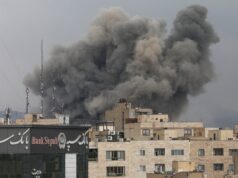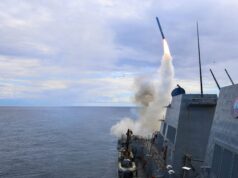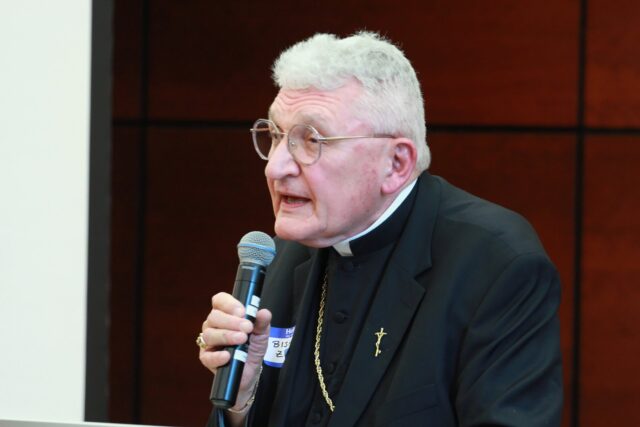
America’s Appalachian region is a mountainous land of contrasts — a stunning and rugged terrain stretching through 423 counties and 13 states from southern New York to northern Mississippi, home to abundant natural resources and populated by proud and resilient people.
But it’s also an area fighting a poverty rate of 14.3% daily, the effects of decades of industrial decline, environmental threats, a lack of infrastructure and deaths from opioid overdoses 72% higher than non-Appalachian counties.
On Oct. 25, 150 leaders from across Appalachia gathered at the Diocese of Pittsburgh Pastoral Center for a daylong “faith and labor” dialogue designed to grapple with a range of questions concerning the region’s fate.
Held under a hopeful theme, “A Healthy Future for This Land,” the event was convened by three Catholic bishops — Bishop Mark A. Eckman and retired Bishop David A. Zubik, both of Pittsburgh, and Bishop Mark E. Brennan of Wheeling-Charleston, West Virginia — to mark the twin anniversaries of the 1975 pastoral letter “This Land is Home to Me” and Pope Francis’ 2015 environmental encyclical “Laudato Si’.”
“The question that faces you and I today in a very particular way is this,” said Bishop Zubik as he opened the proceedings. “How do we lift up, and care for creation, and care for the workers in Appalachia?”
“This Land is Home to Me” was a groundbreaking pastoral letter written by 25 Catholic bishops from across Appalachia. It explores the then-critical problems of the region and the broader society — all of which remain relevant, especially economic exploitation and environmental degradation. It encourages a faith response rooted in both listening and solidarity.
“When we take a look at what’s happened over the course of the last 50 years,” noted Bishop Zubik, “there is still a great deal of work that needs to be done.”
Data released this June by the Appalachian Regional Commission indicates rates of labor force participation and home ownership continue to improve in Appalachia. That said, population growth lags; post-secondary educational attainment remains behind the national average; and a greater share of residents live in poverty.
Bishop Brennan emphasized that stubborn inequities persist in the Appalachian economy.
“This region of our country — the backbone of the Appalachian mountains — is rich in natural resources, and in the intelligence and talent of its people. But the profit — of developing those resources, using them — goes to powerful corporations, and their owners. And what is the problem?” he asked. “The fruits of labor — the work that people do, think the ordinary people — are not fairly distributed.”
Upon arriving in West Virginia in 2019, Bishop Brennan was shocked to see the effects of strip mining, also known as mountaintop removal. The highly destructive mining method uses explosives to blast away the tops of mountains in pursuit of coal, in the process crushing entire mountainsides.
EarthJustice — a nonprofit public interest environmental law organization with offices across the U.S. — noted, “In the past few decades, over 2,000 miles of streams and headwaters that provide drinking water for millions of Americans have been permanently buried and destroyed. An area the size of Delaware has been flattened.”
Bishop Brennan wondered, “Are we going to transform the Mountain State into the flatlands of Eastern Kansas?”
Continuing, he stressed the dignity of workers and the power of collective action.
In his 1981 encyclical “Laborem Exercens” (“Through Work”), St. John Paul II “insists on the priority of labor over capital, of the human person over the product that person makes,” explained Bishop Brennan. “The Industrial Revolution — and many aspects of our American and world economy today — put human beings below the profit of the few.”
He then asked his audience what could be done to foster a more just economy, and a more humane world.
“One thing,” Bishop Brennan suggested, “is solidarity with the workers around the world — and here, unions are important. One thing we need to do, I think — that the unions need to do — is to raise our voices. We need to raise our voices and start boycotts, of slave labor in China and underpaid workers in other parts of the world.”
“Also,” he added, “we can call large corporations to account for the huge salary gap, between ordinary workers and the managers, and owners on the other hand.”
The objective of such actions, Bishop Brennan underlined, is human flourishing.
“The goal here — this is something the American Catholic bishops have been advocating for well over a century — (is) a family wage, one worker in the family. One earns enough to sustain the family,” he said.
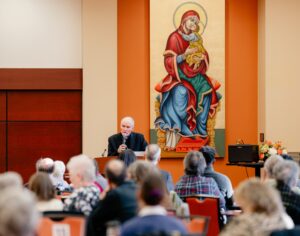
“Religious groups and civic organizations can apply pressure — again, boycotts — on corporations and products. The goal is not to hurt,” affirmed Bishop Brennan. “It is to call attention to the hurt that is being done by them.”
“John Paul II said, ‘Unions are a mouthpiece for social justice.’ Not against others — not a matter of class warfare — but the goal is that the human person not just have more, but be more. The development of the person,” concluded Bishop Brennan, “is ultimately the goal of work.”
Attendees also heard from:
— Angela Ferritto, president of the Pennsylvania AFL-CIO and co-founder of the Union Energy organization advocating for clean energy.
— Sister Helen Skormisley, a member of the leadership team of the Congregation of St. Joseph in Wheeling, West Virginia, who responded to the forced fracking of their land.
— Molly Linehan-Belcher, chair of the Catholic Committee of Appalachia and chair of the event.
— Tom Breiding, who performed Americana music and storytelling.
— Brad Davis, a Methodist pastor and co-founder of From Below: Rising Together for Coalfield Justice, which organizes against water pollution in southern West Virginia.
Appalachian Catholics, clergy, religious sisters, diocesan staff and labor leaders all focused on protecting the environment and supporting workers in an era of transitioning to clean energy.
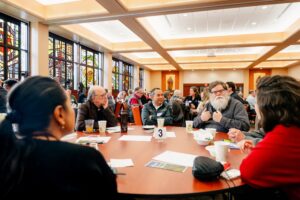
The delegates were sponsored by dioceses or invited by planning committee members. During their Pittsburgh stay, many toured murals on labor and social justice painted in the 1930s and ’40s, and also listened to a West Virginia labor singer at St. Nicholas Church, just outside Pittsburgh.
Bishop Eckman said he believes the United States has the ability to balance both a safe work environment and a safe place for workers to live.
“We certainly in this country — of all countries in the world — have the resources to be able to have a safe environment where we work, and a safe environment for the people who live in that area,” he said.
“There’s no reason,” he continued, “why we can’t develop better techniques and better methods to keep our air clean and our water clean. It’s one day at a time — but if we respect the life that we see in one another, we are respecting the image and the likeness of the God who created us.”






